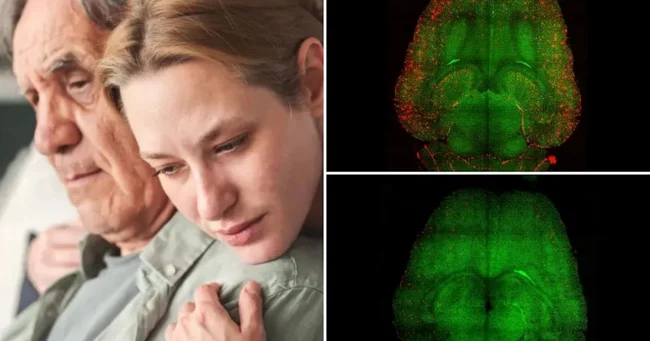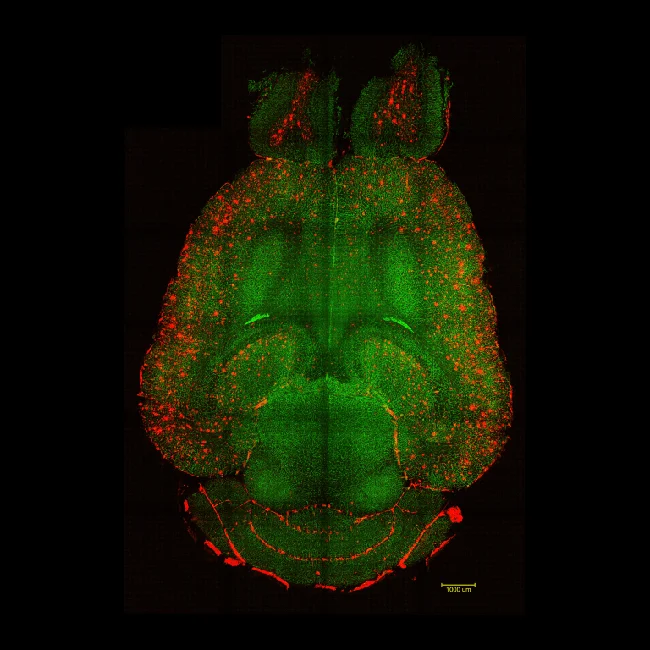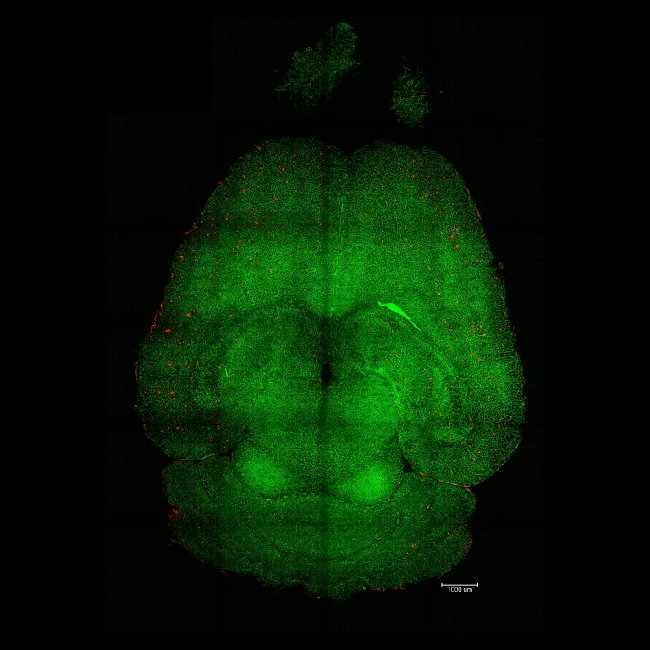Nanotechnology has shown effectiveness in treating Alzheimer's disease in mice (3 photos)
Millions of people worldwide live with Alzheimer's disease, which slowly destroys memory, cognitive abilities, and the ability to perform simple tasks. New research has identified innovative nanotechnology that restored blood-brain barrier (BBB) function and reversed the disease in mice. 
Traditional nanomedicine uses nanoparticles as carriers of therapeutic molecules. However, an international team of scientists has used nanoparticles as stand-alone biologically active substances. These are called "supramolecular therapeutics."
How it works: The blood-brain barrier protects the brain by regulating its environment and guarding against pathogens, toxins, and other threats.
Alzheimer's disease is characterized by the accumulation of harmful proteins, primarily beta-amyloid, which disrupts nervous system function.
A team of experts administered three doses of supramolecular preparations to mice with high levels of beta-amyloid in their brains.
"Just one hour after the injection, we observed a 50-60% reduction in beta-amyloid levels in the brain," said Junyan Chen, first co-author of the study and a researcher at the West China Medical Center, Sichuan University. 
Mouse brain before treatment
In one experiment, a 12-month-old mouse, equivalent to a 60-year-old human, was injected with nanoparticles and monitored for six months.
By the end of the study, when the mouse was 18 months old (or 90 years old in human years), it had fully recovered and behaved like a healthy rodent.
The scientists argue that these long-term changes are related to the restoration of the brain's vascular system—the complex network of blood vessels that form its structure.
"It works like a cascade: when toxic substances like beta-amyloid accumulate, the disease progresses," explained study leader Giuseppe Battaglia of the Institute of Bioengineering of Catalonia in Spain. "Once the vasculature is functional again, it begins to remove harmful molecules, allowing the entire system to restore its balance." 
After therapy
"Our study showed impressive results: we accelerated the removal of beta-amyloid, restored normal blood-brain barrier function, and achieved significant improvement in Alzheimer's disease," commented Lorena Ruiz Perez.
Don't get too excited. The human blood-brain barrier is much more complex than that of mice. This is why many brain disease treatments that are effective in mice don't work in humans.
























